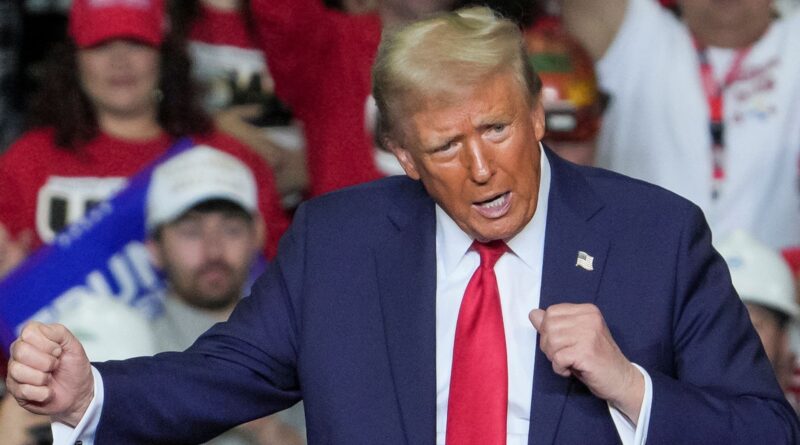Kamala Harris loses crucial battleground state of Pennsylvania as Democratic efforts to influence voters fail, causing defeat | US News
Donald Trump’s path to victory was forecasted to go through Pennsylvania. His win there marked the turning point.
What caused this swing state to lean towards him and what does it indicate about his overall victory?
Despite claims of an unprecedented election that was breaking norms, the result may have boiled down to a familiar narrative.
US election latest: Harris to call Trump and give concession speech
Over two weeks, we traveled across Pennsylvania engaging with voters and understanding their sentiments.
The suburbs of major cities like Philadelphia and Pittsburgh played a crucial role.
And in these suburbs, a common message emerged.
Under Joe Biden and Kamala Harris, life had become too costly and voters desired change, primarily motivated by economic concerns.
It appears that one of the Democrats’ missteps was assuming they could portray an incumbent vice president as a change agent.
The voters we spoke to were not convinced.
For many, Harris lacked likability, with some indicating they would vote for her solely because she was not Donald Trump.
When it came to Trump, voters were able to overlook his flaws because they appreciated his policies and accomplishments.
Read more:
Trump’s main pledges for second term
Trump’s victory in maps and charts
Shootings, gaffes and McDonald’s: US election in pictures
A simple comparison
In the end, for many it seemed to boil down to a simple comparison.
Were their four years under Biden as easy and affordable as they were under Trump? And the answer was emphatically no.
Rose-tinted glasses, “Trumpnesia” and wishful thinking may all have played a part, but if the economy was improving they said they just weren’t feeling it.
Various factors contributed to Trump’s victory, with some stemming from the Democrats themselves
They appeared disconnected, with their candidate seeming distant and entitled, as some observed. The support from wealthy celebrities likely exacerbated this perception.
Issues like overseas turmoil, foreign conflicts, immigration, and border control were also raised, but the primary concern was the cost of living.
It’s the economy, stupid
Amidst discussions of an unprecedented election, it ultimately came down to a familiar theme.
In the end, the narrative echoed a common refrain.
Americans felt economically strained compared to four years ago. It was once again about the economy, plain and simple.
Voters sought change, and that is what they believed they were voting for.






